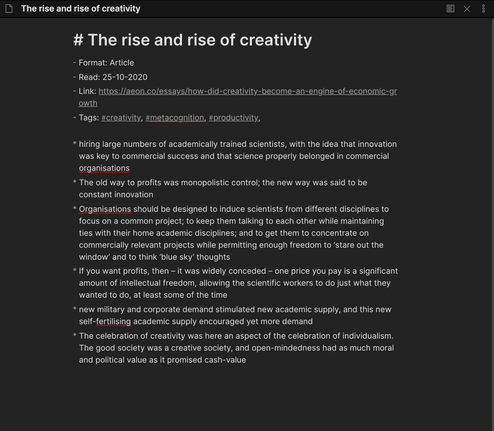@macedotavares I really enjoyed playing with this plugin.
Thank you so much for sharing it.
I’ve placed it inside an Alfred Workflow so now I can call the script on any note within Obsidian.
Really really nice.
I’ve attached the Alfred Script in case anyone else wants to play with it.
You will need to install some libraries from the requirements.txt file before it will work.
And of course, set up the Alfred variables to state where your vault_path and valut_name is.

obsidian-similar-notes.zip (491.3 KB)